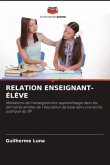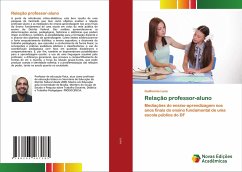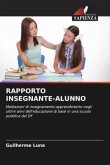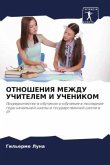Based on critical-dialectical references, this book is the result of a master's research that aimed to analyze the teacher-student relationship and the mediations of teaching-learning in the final years of elementary school in a school in cycles of the public education system of the Federal District. From the analysis, the social, pedagogical, historical, and systemic determinations that can impose limits and also the possibilities for the formation of students and the achievement of learning objectives were apprehended. As limits were evidenced the strong didactic framework; the expository teaching; the dichotomy of the pedagogical work, which reproduces knowledge in a linear way; the selective and classifying evaluation conceptions and practices; the use of pedagogical coordination focused on disciplinary and behavioral issues. And, finally, there were also possibilities for school learning: the use of an accessible language by the teacher; the generational difference, which causes the sharing of ways of seeing the world; the strength of the group-class relationship, which can produce cohesion and collective identity; and the problematization of power relations, both at school and in society.
Bitte wählen Sie Ihr Anliegen aus.
Rechnungen
Retourenschein anfordern
Bestellstatus
Storno








